I'M ONE TO TALK
Our Blog Posts will help you reach your full potential in becoming a confident conversationalist. New topics each week.
So you're saying there's a chance...
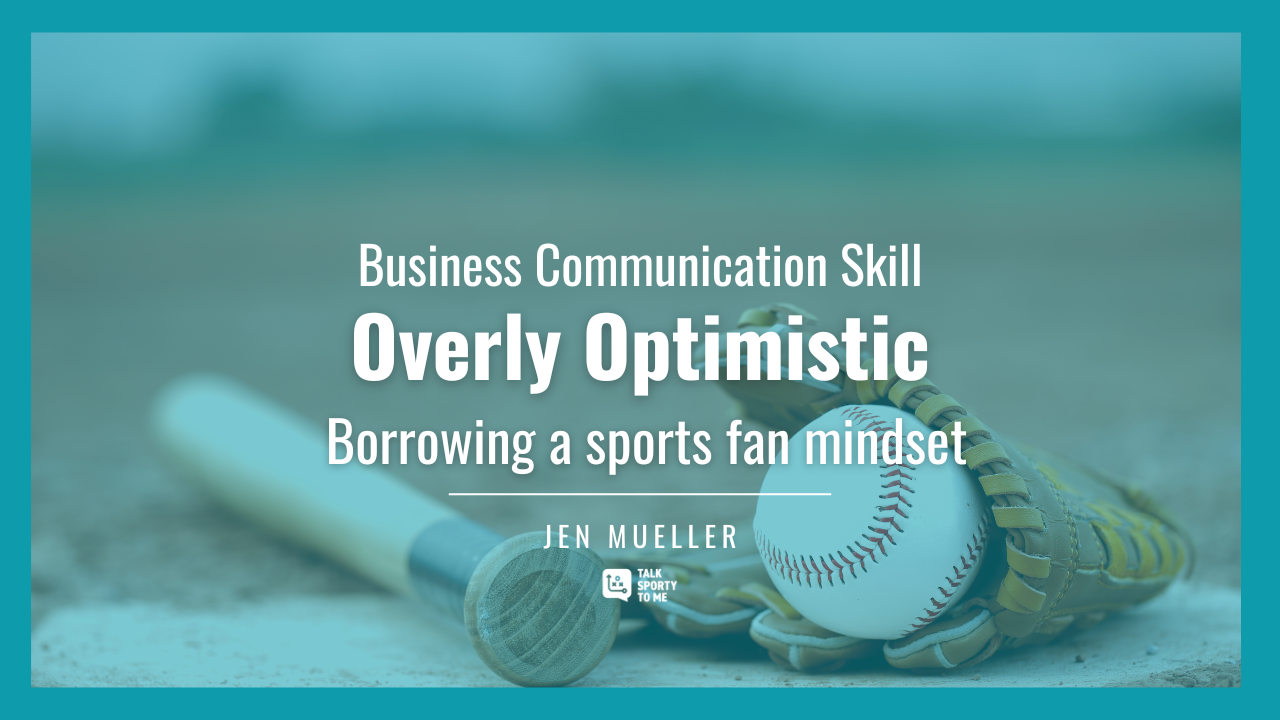
Opening Day and the start of every sports season brings unrivaled optimism that "This could be the year..."
The promise of Spring Training, the hype around new players, and a win-loss record that hasn't yet reflected the actual talent on a team, gives fans hope. Even if there is misguided optimism and unrealistic expectations (most) fans enjoy the feeling that anything is possible for the season.
As a fan you've probably rolled your eyes a few times at friends who insisted their team had a legit chance to win the championship as a long shot. You might have even argued the finer points of expected wins, off-season moves and games lost to injury. But you can't deny the optimism that exists at the start of every season, when each team starts with a clean slate and anything seems possible.
Let me ask you this... when was the last time you felt the same about your career or your business?
We laugh, roll our eyes and dismiss the enthusiasm of fans, but we should actually embrace t...
Sports Conversation Starters for Your Workweek
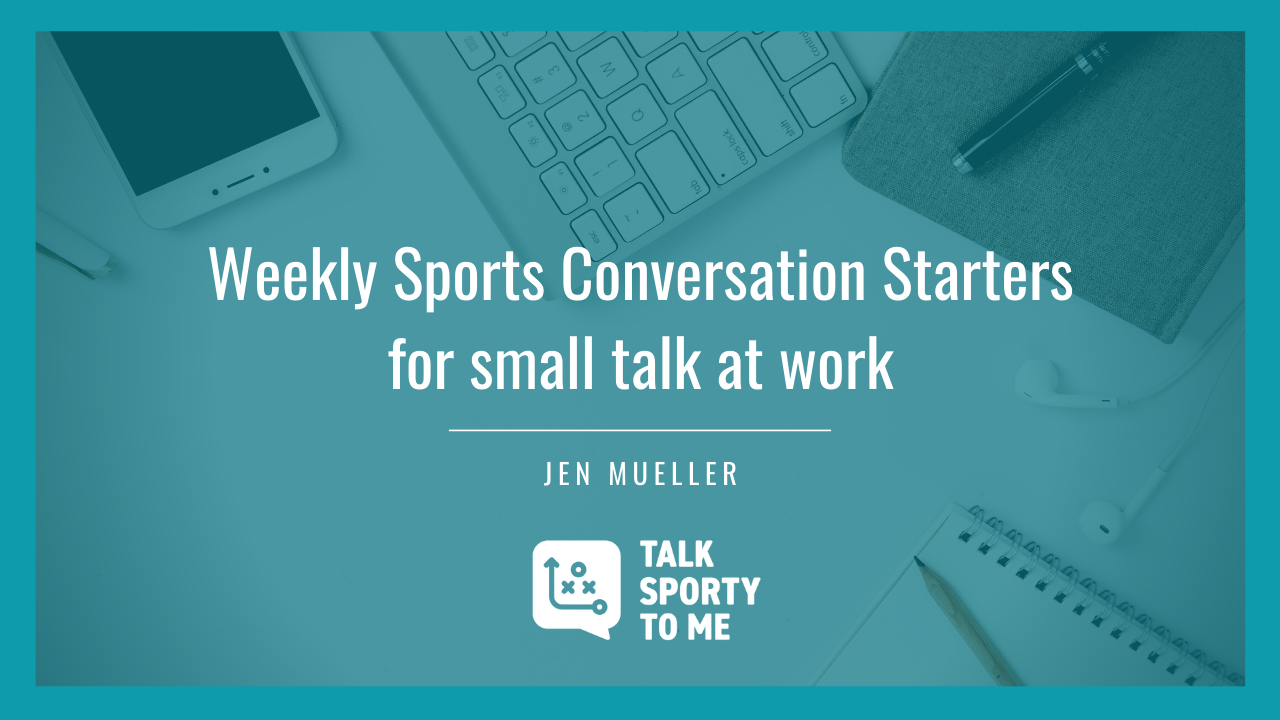
Every conversation has the opportunity to be productive... if you're strategic and intentional. When you go into a conversation with a plan you're more likely to meet your objective.
This weekly list of sports conversation starters isn't just to help keep you in the loop, it helps me plan for conversations and think through the types of small talk I know I'll encounter. It's not about how much sports you've watched (which for me this weekend was zero because I spent time with my grandparents) it's about the connections you're willing to make in a conversation.

Something Sounds Different

I didn’t think it was a big deal and quite honestly I wasn’t sure why anyone else did either.
Being part of a TV broadcast is nothing new for me and something that happens every single day during the baseball season. Being part of an all-female broadcast team during Spring Training this season was a new experience.
Heading into the broadcast I was most excited to work alongside very talented women I call friends. At dinner the night before the game I expressed my dismay that people were making a big deal out of it. After all, I pointed out, we go to work every day and do the same thing we’ll be doing tomorrow. It shouldn’t be a big deal that we’re on a broadcast together. Except it was. And here’s what drove that point home the day of the game – every single voice I heard, both on the air and behind the scenes, was female.
Here's why that was so significant, in college I was told that men don’t want to hear women talking about sports. Most women were discouraged from even trying....
Sports Conversation Starters for Your Workweek
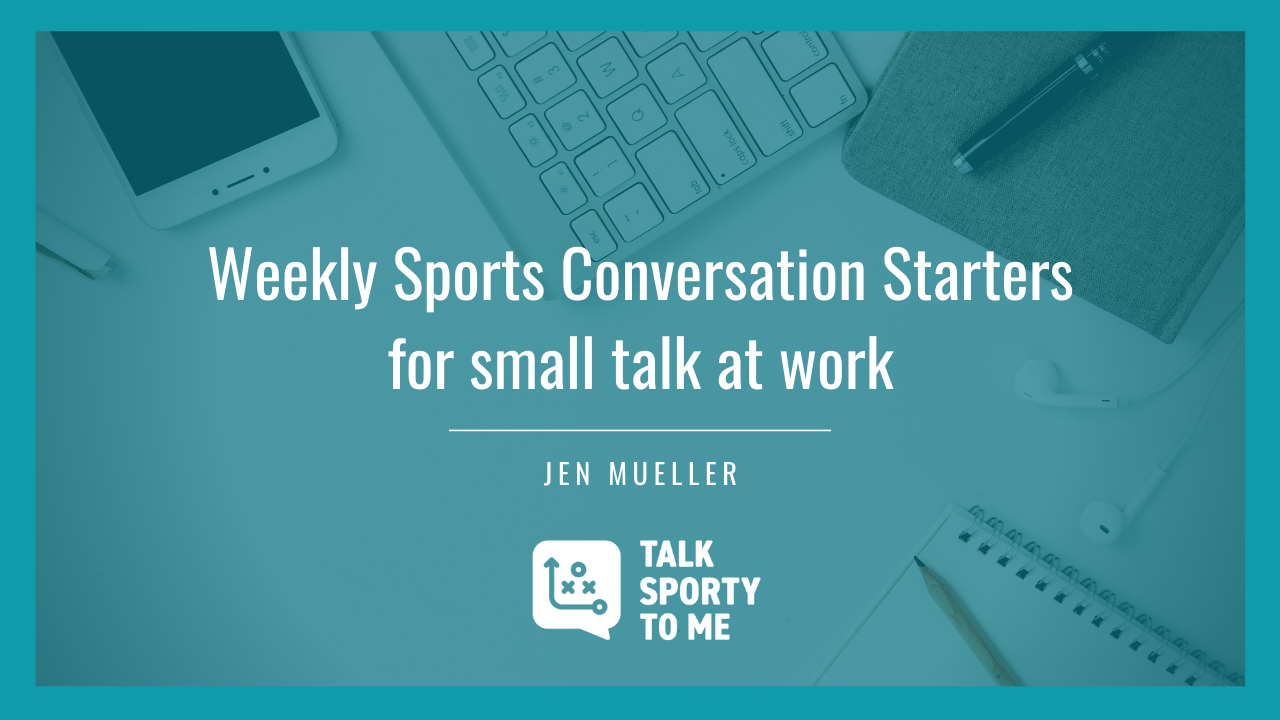
I got it wrong, but so did everyone else. It’s kind of the beauty around the men’s NCAA Tournament this year. Everyone is in the same boat. No one has a perfect bracket, at least not among the more than 20 million submitted in major online games.
I would give mad props to anyone who correctly predicted all the upsets in the first two rounds, but sports small talk isn’t about being right. It’s about connecting.
Sports gives you an avenue to do that win or lose. You can use these Sports Conversation Starters to get the ball rolling this week.

Busted Brackets Galore

It will go down as one of the wildest weekends in Men's NCAA Tournament history.
For the second time ever a No. 16 seed upset a No. 1 seed (which busted plenty of brackets) but that's not all. There were upsets throughout the bracket and by Friday night, two days into the tournament, zero perfect brackets remained out of more than 20 million submitted in major online games. Zero.
That means there's a lot of folks talking about upsets, Cinderella's, busted brackets and NCAA Tournament games. Which gives you a lot of chances to connect because Misery Loves Company.
Sports conversations don't have to focus on game outcomes. In fact, in a business setting I think of sports as a way to find common ground in building relationships. I don't care about the scores nearly as much as I care about making a connection.
If you're new to sports talk it can feel overwhelming to jump into conversations with sports fans. The Talk Sporty 101 series offers strategies to make it easier to connect...
Sports Conversation Starters for Your Workweek

March Madness gives you an advantage in small talk and relationship building for the next three weeks.
Spring Training can be a reminder about getting the right folks on your team and in your corner.

Sports is more than stats and scores… if you allow it to be. With that in mind here are sports topics worth using in small talk this week

Using March Madness to Your Advantage
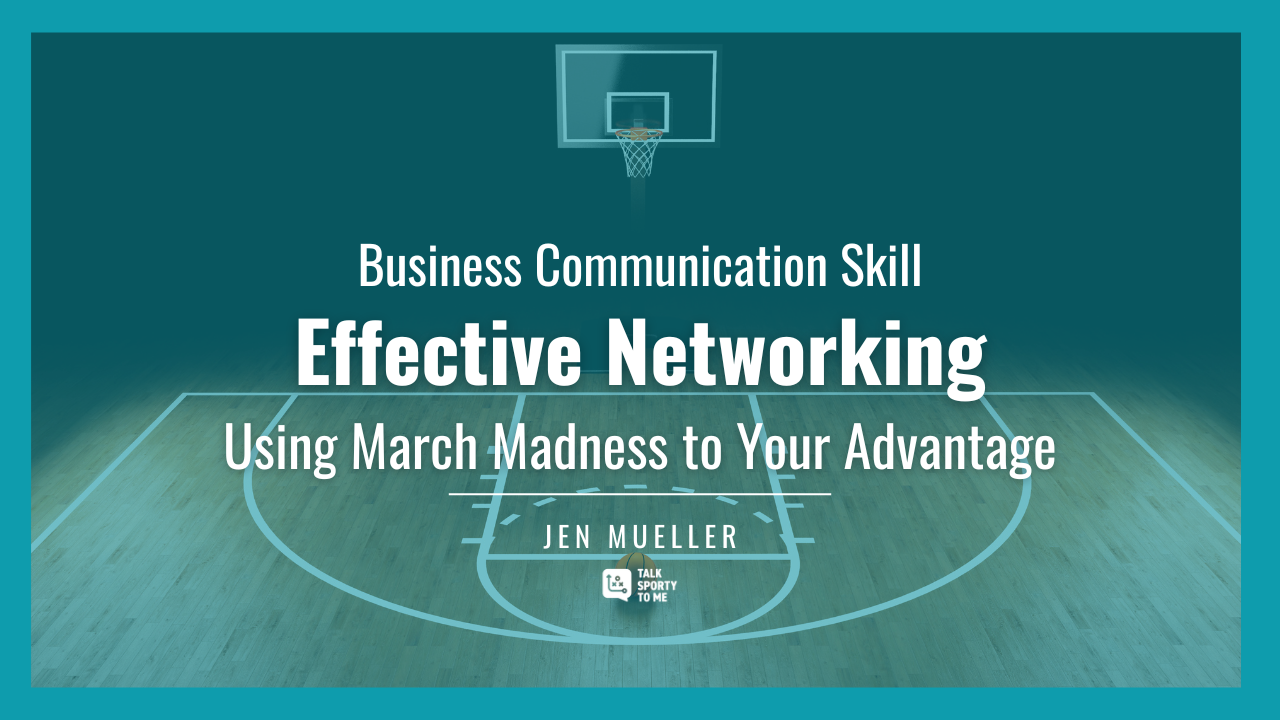
You know it takes more than one conversation to build a business relationship.
You also know it can be tricky to find the right balance or cadence in sending emails or striking up conversations with someone who's new to your network or contact list.
What you might not have consider is the tremendous networking opportunity March Madness and the NCAA Tournament presents. It's not about basketball. It comes down to the frequency of the conversations. It's expected basketball fans are going to talk about the tournament. It lasts three weeks, there's always drama and anyone who fills out an NCAA Tournament bracket is invested in the outcomes, at least to a small degree.
If you're a basketball fan, that's awesome. If you're only a basketball fan during the NCAA Tournament, that's great. If you don't care about basketball at all, I'd suggest you take a passing interest and think outside the box scores.
Talking to a new business contact every couple days for three weeks is ridiculou...
Sports Conversation Starters for Your Workweek
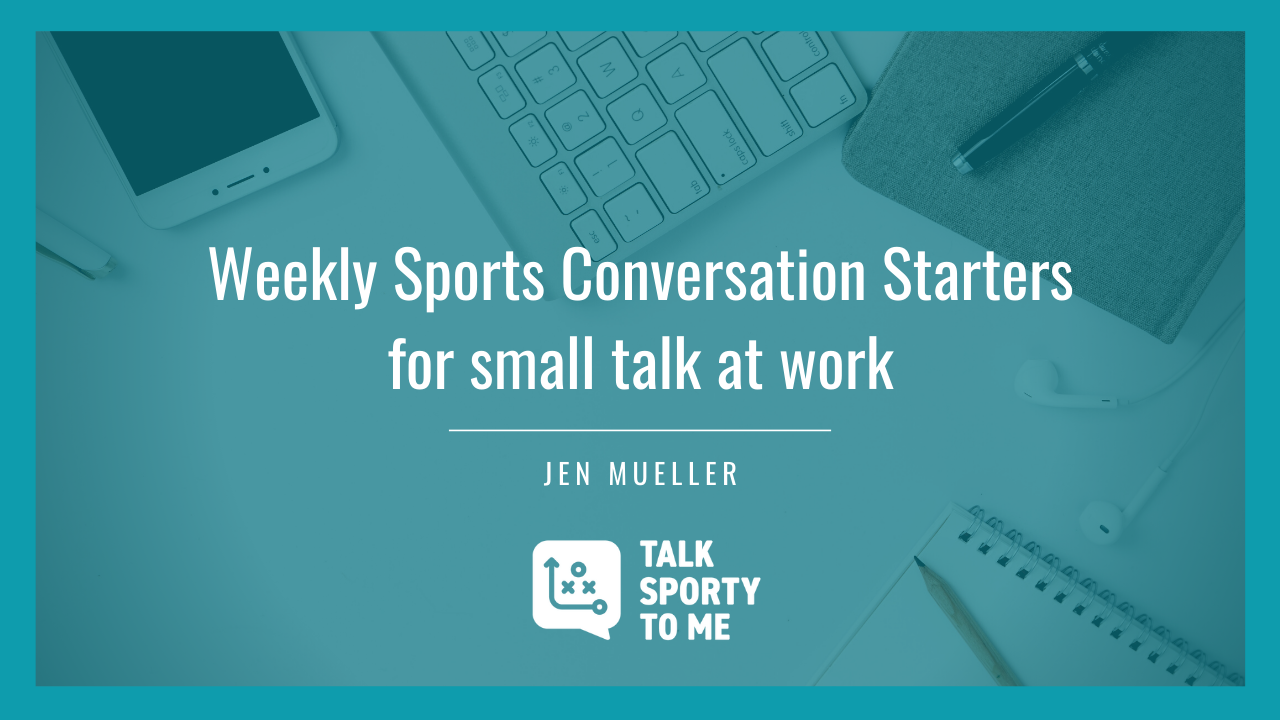
Each week I encourage you to utilize opportunities in small talk. This week I’m encouraged by a conversation that took place 10 years ago…
Friday I spoke a conference and the name of one our afternoon speakers looked very familiar. I couldn’t place it until she gave me a hug and said thank you for taking the time to talk to her several years earlier at the same conference. That interaction and the couple follow up emails and conversations led to finding her perfect job in sports.
Talking to aspiring broadcasters is something I do frequently, but I don’t always hear the follow up success stories and get the reminder that conversations matter – even the ones you might have forgotten about or are no longer top of mind. I don’t remember the specifics of that conversation 10 years ago but I am positive it started with small talk at the conference. Small talk set the tone for our interactions and laid the foundation for bigger conversations that created career opportunities.
Conversatio...
Sports Conversation Starters for Your Workweek
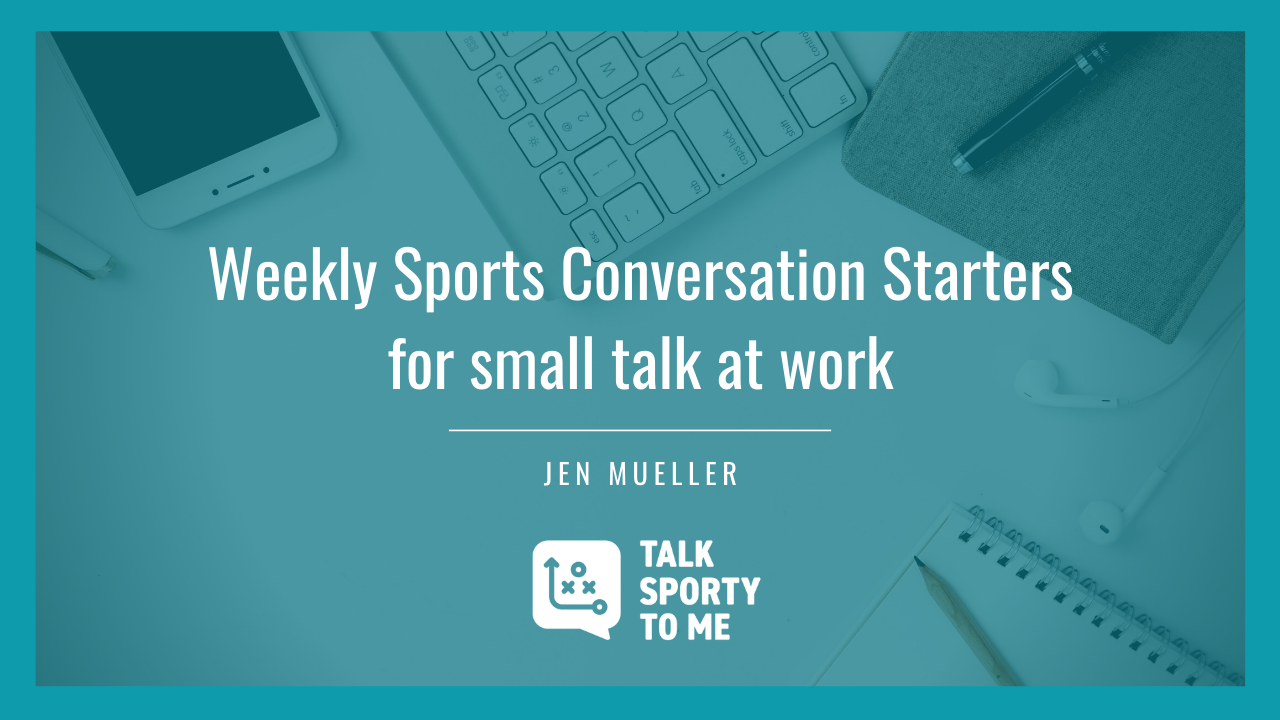
Change management in real time.
That’s what we’re seeing across Major League Baseball as a result of new rule changes that include a pitch clock. That means that for the first time ever the game will be timed at the big league level.
There are a couple of things I want point out:
- Regardless as to if you’re a baseball fan, change is something we are all forced to deal with from time to time.
- This is a perfect example of a parallel between sports and business. You don’t have to talk about baseball. You can use baseball to springboard into bigger topics about adapting and reacting to change.
The baseball rule changes are a popular topic at the moment, but if you’d like additional headlines for small talk this week check out the full list below.

Planks, Pitch Clocks and Focus
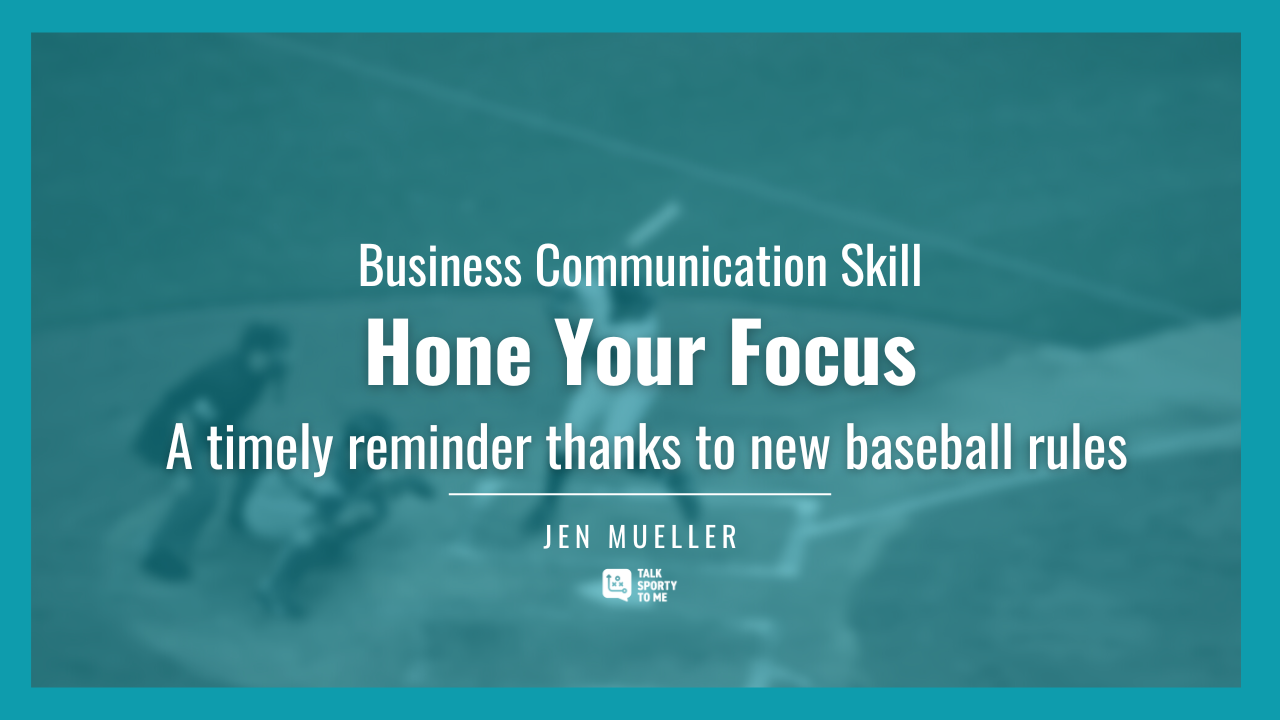
I was finishing my workout. I just wanted to make it through my final plank - UGH! I watched the seconds tick by with one thought, "just finish."
After collapsing into a child's pose I realized I spent more than a minute thinking about just one thing - that stupid plank. In fact, that might have been the only time that day my mind wasn't skipping around, trying to manage multiple things at once. The timer at the end of my workout forced me to focus. It's the same thing that's happening in Major League Baseball this year.
For the first time ever there is a pitch clock for big league games. It's creating a lot of conversation and that gives us a chance to think outside the box scores.
I've talked to a number of big league hitters who have all said the new timing rules forces them to focus on one objective at the plate. They don't have time to think about the previous pitch. There's no time for extra thoughts or "What ifs." Being on the clock hones their focus.
It's the same kin...


